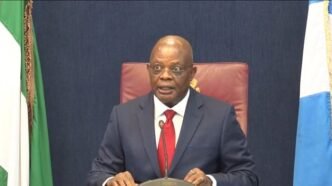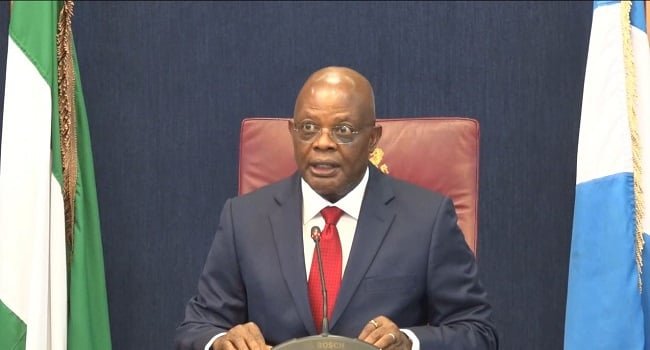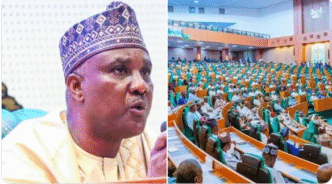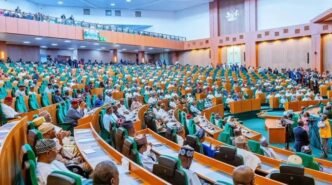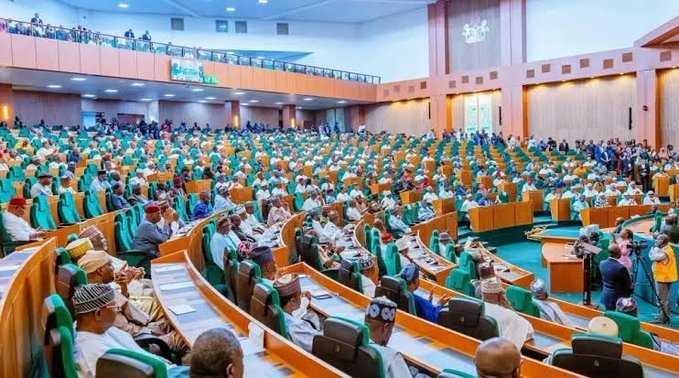The political temperature in Rivers State is rising once again, this time centering on a looming confrontation between the immediate past state administrator, Vice Admiral Ibok-Ete Ibas (retd.), and the Rivers State House of Assembly. At the heart of the brewing crisis is the Assembly’s decision to probe the state’s financial expenditure over the last few months of Ibas’s administration, a move the retired naval chief has reportedly frowned upon.
For many observers, the unfolding drama is not just about figures on a balance sheet. It represents another test of accountability in governance, the extent of legislative oversight powers, and the legacy of an administrator who stepped into office during a politically sensitive period in the state.
How the Probe Began
The Rivers State House of Assembly, in its plenary last week, passed a resolution directing its Public Accounts Committee to conduct a detailed investigation into expenditures made under the leadership of Vice Admiral Ibok-Ete Ibas during his tenure as administrator. Lawmakers argued that public concern had been mounting over “irregular disbursements, lack of transparency in certain contracts, and the absence of detailed reports on state spending.”
According to the Assembly, the probe is necessary to uphold the principles of accountability, ensure public resources were properly managed, and restore confidence in the state’s financial systems. Several legislators pointed to constitutional provisions that empower them to scrutinize past and current spending, stressing that no officeholder should be above legislative inquiry.
One lawmaker declared during the debate: “The funds belong to the people of Rivers State, not to individuals. If we fail to ask questions, we betray our mandate as representatives of the people.”
Ibok-Ete Ibas Pushes Back
In what has been interpreted as a rejection of the Assembly’s move, allies of Vice Admiral Ibas have described the planned probe as “politically motivated” and an attempt to discredit his stewardship. Sources close to the former administrator insist that his records are clean and that all expenditure during his tenure followed due process.
“The former administrator is not afraid of scrutiny, but he will not sit by while a witch-hunt is dressed up as oversight,” one confidant remarked. “Every transaction during his administration went through the appropriate channels, and reports were duly submitted to the necessary offices. What we see today is politics, not accountability.”
Although Ibas himself has maintained a measured silence in public, the stance from his camp suggests that he is unwilling to quietly submit to what he views as a targeted attempt to undermine his reputation.
A Political Showdown in the Making
The decision of the Assembly to dig into the financial books of the immediate past administration has been viewed by many political analysts as a calculated move. Some see it as a way of signaling to the political establishment that the legislature intends to assert its independence and restore public confidence after years of perceived subservience to the executive.
Dr. Chinyere Nwosu, a political analyst based in Port Harcourt, explained: “Probes are not unusual, but timing is everything. The fact that the Rivers Assembly is taking this step so soon after a change of leadership suggests a strong political undertone. It is both about accountability and about sending a message that the legislature will not be sidelined.”
Others, however, interpret the planned probe as part of the wider political contestation that has gripped Rivers State in recent years. With shifting alliances, rival camps, and the constant battle for supremacy in one of Nigeria’s most strategic oil-rich states, the Assembly’s move could easily spill into a broader political clash.
Why Rivers State Finances Matter
Rivers State, one of Nigeria’s leading oil-producing regions, commands a huge share of the nation’s revenue allocation and internally generated funds. Its budget runs into hundreds of billions annually, covering critical sectors like infrastructure, education, health, and oil-related community development.
With such vast financial resources at stake, questions around transparency and accountability have never been far from public discourse. Past administrations in the state have often been accused—sometimes without proof—of mismanaging resources or prioritizing political projects over the people’s needs.
For the Assembly, probing Ibas’s six-month spending period may be a way of drawing a line and setting a new tone for financial accountability in Rivers State. Critics, however, worry that the effort may degenerate into political theater rather than a serious exercise in governance reform.
The Legal and Constitutional Context
Nigeria’s 1999 Constitution empowers state assemblies to exercise oversight functions over the executive, particularly in the appropriation and use of public funds. By law, the Assembly can summon any former or current public officer to provide explanations, submit documents, or clarify financial matters.
However, gray areas often emerge when such probes target past leaders who are no longer in office. While they remain accountable for their actions during their tenure, the political climate can shape the interpretation of legislative powers.
Legal experts warn that if Ibas chooses to formally reject the probe, the matter could escalate into a constitutional test case. Courts may then have to decide whether a former administrator can be compelled to submit to legislative scrutiny, or whether such probes should be left to statutory auditors and investigative agencies.
Civil Society Weighs In
Civil society groups in Rivers State have reacted strongly to the development, with most urging Ibas to embrace the probe as an opportunity to clear his name.
“The people have a right to know how their money was spent,” said Comrade Fubara Tamuno, a Port Harcourt-based activist. “This is not about politics. It is about transparency. If the former administrator has nothing to hide, then let him open the books and show us how every kobo was spent.”
Others, however, share Ibas’s concerns about political motives. They caution that while accountability is important, legislative probes should not become tools of intimidation or score-settling.
“The Assembly must prove that this probe is about the people and not about power,” said another activist. “If it degenerates into political drama, then the credibility of the entire exercise will be lost.”
Public Perception
For ordinary citizens of Rivers State, the probe has sparked mixed reactions. Many residents in Port Harcourt and beyond are skeptical, citing a history of probes that yielded no concrete results. Some fear this may end up as another high-profile investigation with no tangible accountability.
A taxi driver interviewed in the state capital put it bluntly: “They will make noise, call people to the Assembly, and then forget about it. At the end, nobody will return our money if it was wasted.”
On the other hand, some residents welcome the move, saying it may deter future leaders from mismanaging state resources. They argue that even if the probe is politically motivated, it could still produce positive outcomes if it shines light on how public funds were used.
What Next?
Several possible scenarios are now on the table:
- Full Compliance: Ibas may eventually agree to cooperate, submit documents, and defend his administration’s record before the Assembly.
- Partial Engagement: He may send representatives or documents but avoid appearing in person, citing constitutional or personal grounds.
- Legal Battle: The matter could escalate to the courts if Ibas formally challenges the Assembly’s authority to probe his administration.
- Political Settlement: Behind-the-scenes negotiations may lead to a compromise, with both sides softening their stance to avoid escalating tensions in the state.
Conclusion
The looming face-off between Vice Admiral Ibok-Ete Ibas (retd.) and the Rivers State House of Assembly is shaping up to be one of the most significant political battles in the state’s recent history. At stake are not only questions of accountability and transparency but also the broader struggle for political influence in one of Nigeria’s richest states.
For Governor Ibas, the probe threatens to cast a shadow over his short but critical tenure. For the Assembly, it is a chance to demonstrate independence and restore public trust. For the people of Rivers State, it is a test of whether their leaders will prioritize governance over politics.
Whether this episode ends as a landmark moment for accountability or fizzles into yet another chapter of political drama remains to be seen. But one thing is certain: Rivers State is once again at the crossroads of power, transparency, and the never-ending struggle to balance governance with politics.

